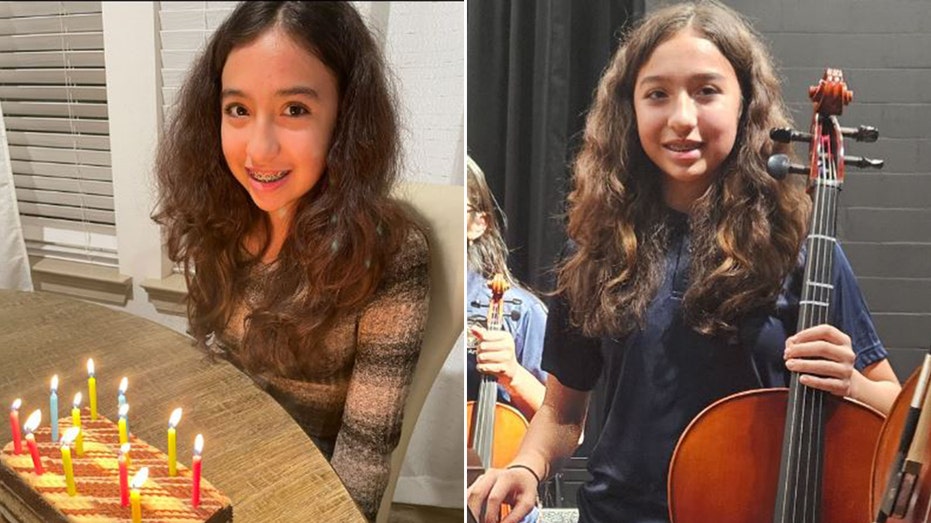Texas Lt. Gov. Dan Patrick said he told the mother of a 12-year-old Houston girl who was allegedly killed by two illegal immigrants that he wants state lawmakers to pass a bill named after the victim that would deny bail to certain murder suspects.
Patrick, a Republican, said he spoke with Alexis Nungaray, mother of Jocelyn Nungaray, after the girl was laid to rest Thursday. The alleged killers — Johan Jose Martinez Rangel, 22, and Franklin Jose Peña Ramos, 26 — are each being held on $10 million bonds.
“Jocelyn’s family was shocked any bail was given in this case,” Patrick wrote on X. “I told Jocelyn’s mom that the Texas Senate will pass bail reform once again and will not accept the House killing this legislation. It will be named after her daughter as ‘Jocelyn’s Law,’ so her daughter’s name will never be forgotten and will ensure capital murderers are not eligible for bail ever again.”
ILLEGAL IMMIGRANT SUSPECT ACCUSED OF KILLING JOCELYN NUNGARAY WORE ICE ANKLE MONITOR
“Jocelyn’s Law” would allow Texans to vote for a constitutional amendment to automatically deny bail for those charged with capital murder.
“Jocelyn’s murder is re-igniting this move to pass this constitutional amendment and we certainly hope it passes,” Rania Mankarious, the CEO of Crime Stoppers of Houston, told Fox News Digital.
The state Legislature is expected to convene on Jan. 14, 2025.
“On the first day we are able to file bills for the next legislative session, I will file Jocelyn’s Law,” state Sen. Joan Huffman, also a Republican, wrote online.
Patrick accused state Democrats and Texas state House Speaker Dade Phelan, a fellow Republican, of killing past bipartisan-supported bail reform bills proposed by Huffman. He cited S.J.R. No. 44, a resolution proposed by Huffman that would have made Martinez Rangel and Peña Ramos ineligible for bail.
HOUSTON’S ‘MATTRESS MACK’ TO PAY FOR FUNERAL FOR JOCELYN NUNGARAY
Nungaray was buried last week, days after she was found strangled to death in a Houston creek. Martinez Rangel and Peña Ramos, both Venezuelan nationals, lured her under a bridge on June 16 and sexually assaulted her before she was killed, Harris County prosecutors said.
Both men entered the United States illegally through El Paso, Texas weeks earlier. A Harris County judge ordered the pair held on separate $10 million bonds.
“We don’t know the background of these individuals. Normally, in a criminal proceeding… you have some type of background data for the judge to do a proper risk assessment to determine what level of bail or what to do with this individual,” Mankarious said.
While the state Senate looks at the bail issue through the lens of public safety, state House lawmakers also care about public safety but also seem to view it through a “hyper-sensitive approach” in an effort to avoid placing an undue burden on a criminal defendant, said Mankarious.
“The notion is that judges would abuse this added tool of denying bail, and we just don’t feel that way,” she said. “There are many, many, many egregious cases, we are seeing it, not just in Harris County but across every major city in this country, where the criminal element is sort of unlike anything we’ve ever seen in years past and we’ve got to address it.”
JOCELYN NUNGARAY MURDER SUSPECT HAS BAIL SET AT $10 MILLION
“Jocelyn’s Law” would also enhance “Lauren’s Law,” named after 13-year-old Lauren Landavazo of Wichita Falls, to make the killing of a child under 15 a death penalty-eligible offense, Patrick said.
Landavazo was shot and killed in 2016 as she was walking home from school. The killer, Kody Lott, is serving a life sentence and is eligible for parole after serving 30 years.
Currently, only the murder of a child under 10 is a death penalty-eligible offense.
Crime victims’ advocates in Texas have been trying to get tougher bail legislation on the books for years, especially in certain cases involving egregious crimes. In years past, many criminal offenders in Harris County were released on low bond or no bond at all, with some going on to reoffend, sometimes violently, Mankarious said.
“The courts at the time were really leaning in to this notion that everybody deserves bail and it can’t be punitive,” she said. “The last few years have been difficult for all of us working in this system.”
Source
